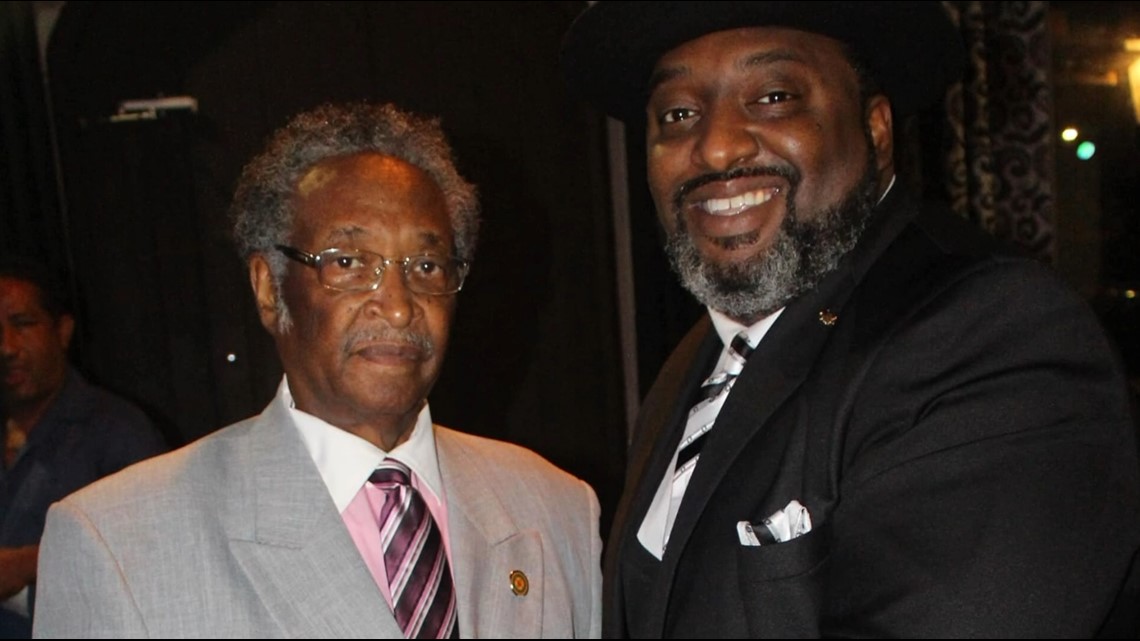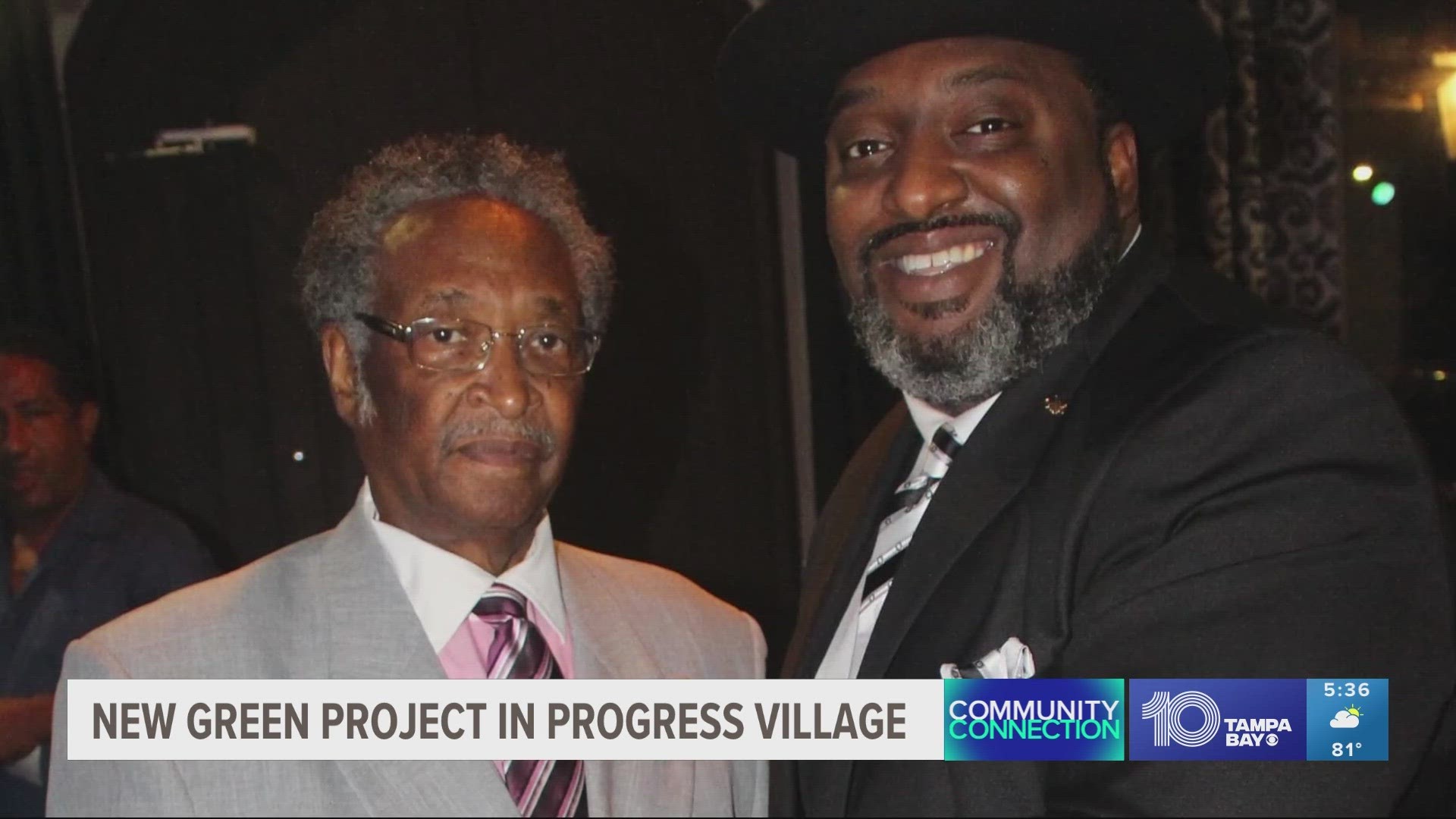PROGRESS VILLAGE, Fla. — Looking back at the past drives Walter L. Smith II to change the future.
His late father, Dr. Walter L. Smith, was once president of Florida A&M University. However, it was only among his noble works and titles.
"He literally built schools around the world and protected those who were less fortunate. I'm just very proud of my father,” Smith said.
Dr. Smith died Nov. 2021 at the age of 86, but his son is continuing to carry on his legacy through environmental justice. He organizes for the Tampa Bay Sierra Club, among other causes.
His latest work is dubbed Project Green Strike, a public and private partnership aimed at reducing utility bills through renewable energy, especially for those most vulnerable to climate change.
The initial work is starting in Progress Village in Hillsborough County. It was the area where Smith’s father purchased his first home. He even managed the local 7-Eleven and helped with the formation of the Little League team, Smith said.


Activists said the area has been historically underserved and at risk of environmental hazards.
For instance, the historic Black neighborhood lies near a phosphogypsum stack, which has brought concerns from some neighbors.
“Project Green strike is a project that was developed because people just got tired,” Smith said during a press conference. “We decided that we were going to do it ourselves.”
As a result, three families are taking part in the project for its launch.
The initial phase of the project consists of weatherization, a process of ensuring a building is protected from outside elements in order to conserve its energy.
It may not only reduce the cost of energy bills, but it’s necessary to install solar power effectively, Smith explained.
Low-income households spend three times more of their income on energy costs compared to the median spending on non-low-income households, according to the U.S. Department of Energy. That's about 8.6% versus 2.3%.
It also found that low-income and older households, along with Black, Hispanic and Native Americans, disproportionately have higher energy burdens.
Norma Salam is among the families whose home is being used as a test pilot for the project. She said her electricity bills have gone up in recent months prompting concern about the impact on her retirement funds.
“It hurts the pocket,” said Salam, who has lived in Progress Village for more than six decades.
The team ensured there was no air leaking out of her doors and replaced her light bulb for the weatherization phase. The following phase consists of adding solar panels to the homes.
While the project is first happening in Progress Village, organizers hope to expand solar power to local churches and areas beyond.
“We’ve got to start somewhere and I think this is the proper place to start,” Smith said. “Even though it's a pilot, it is a template. A template for improved way of life.”
Those formerly incarcerated help with the work through Carmena Enterprises Inc., a partner of the project. The aim is to make sure they have opportunities and employment as they transition back into the community. The final phase aims to provide more wraparound services for them.
Part of the project involves training those in prison and providing income for the work needed in this project through PowerNet of Tampa. The Black Farmers’ Collaborative, Inc. and Tampa Bay Disaster Resiliency Initiative are also involved in the project.
As the project progresses, those involved are aiming to receive more funding to expand the project through different outlets.
Smith continues on his advocacy through work such as the “Toxic Bus Tour,” which he said aims to expose people to environmental concerns in the area like the burning of fossil fuels, disaster risks, and the need to reduce energy burdens. Among the tour’s stops is TECO’s Big Bend station.
TECO invested in solar panels as part of a microgrid pilot program in the Medley at Southshore Bay, however, advocates like Smith believe Progress Village should’ve benefitted from it, too.
“We said we're tired of it, we need to make certain that we look out for ourselves, and that's what Project Green strike was all about,” Smith said.
In response, TECO stated in part, “we are proud of our outstanding record as a good environmental steward. We take this responsibility very seriously.”
TECO says it reduced its carbon emissions by 55% despite producing 25% more power than the year 2000. It also states it’s the top producer of solar energy in the state and the second largest solar producer per customer in the southeast.
By 2026, TECO states nearly 20% of its energy portfolio will come from the sun.
Correction: This story has been updated to reflect TECO reducing its carbon emissions, not adding.

